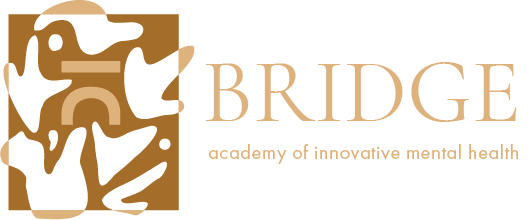Write your awesome label here.
This modern and extensive course explores the many dimensions of suicide, from interpersonal landscapes to cultural/spiritual aspects to environmental factors and more, to help you:
- understand the complexities of suicidality and treatment
- address suicide effectively
- reduce fear and anxiety when working with clients facing suicide
For a comprehensive knowledge-base, you'll receive:
- client role plays
- additional webinars
- integrative approaches
- various guided practices
- downloadable worksheets and handouts
- guidelines for treatment at each risk level
Continuing Education
Resource Preview
Suicide is a complex and sensitive issue that requires a compassionate and comprehensive approach. In this course, we will explore the topic of suicide from various perspectives, emphasizing a compassionate and evidence-based approach to understanding and addressing this critical issue. We will delve into the bio-psycho-social-spiritual-environmental model of suicide, which considers a multitude of factors that contribute to suicidal ideation and behavior. Understanding these factors is crucial for developing effective intervention strategies.
Participants will learn how to conduct thorough risk assessments for suicide, including identifying up-to-date risk factors, protective factors, and warning signs. We will discuss evidence-based assessment tools and techniques to help you accurately assess suicide risk in diverse populations. This course will explore many dimensions of suicidal ideation, from interpersonal to cultural/spiritual to behavioral and more, helping you understand the complexities of this phenomenon and how to address them effectively. As part of this course, you will receive extensive resources to enhance your learning experience. These resources include, but not limited to, client role plays, audio and video formats, downloadable worksheets and references.
Gain the knowledge, skills, and resources to approach suicidality with empathy and understanding, ultimately helping you make a positive impact in the lives of those at risk.
Participants will learn how to conduct thorough risk assessments for suicide, including identifying up-to-date risk factors, protective factors, and warning signs. We will discuss evidence-based assessment tools and techniques to help you accurately assess suicide risk in diverse populations. This course will explore many dimensions of suicidal ideation, from interpersonal to cultural/spiritual to behavioral and more, helping you understand the complexities of this phenomenon and how to address them effectively. As part of this course, you will receive extensive resources to enhance your learning experience. These resources include, but not limited to, client role plays, audio and video formats, downloadable worksheets and references.
Gain the knowledge, skills, and resources to approach suicidality with empathy and understanding, ultimately helping you make a positive impact in the lives of those at risk.
Learning Objectives
Write your awesome label here.
Juniper Owens
Juniper earned bachelor's and master's degrees in social work from the University of Louisville and is a licensed clinical social worker in Kentucky. Juniper holds certifications in various therapeutic approaches, including EMDR, grief therapy, and Crisis and Suicide First Response. /
Juniper co-founded Bridge Counseling and Wellness, a leading integrative mental health center in Louisville. She has also taught at the Kent School of Social Work, teaching Human Behavior and the Social Environment, and currently focuses on educational facilitation at the Academy. She is the creator and one of the hosts of the Conscious Mental Health Podcast, where she provides educational content in the field of mental health, focusing on the person-in-enviornment perspective. Her clinical expertise includes a range of therapeutic approaches, particularly in the treatment of anxiety and crisis work.
Write your awesome label here.
Laurel Sims-Stewart
Laurel is a Licensed Professional Clinical Counselor with a background in art therapy. She is the recipient of the 2019 Bridge to Light award for Child Counseling and Support. In her work with the Academy, Laurel assists in content production, development, and training.
Laurel specializes in the treatment of trauma, anxiety, mood disorders, and life stage transitions. Throughout her time in practice, she has always gravitated toward an integrative, insight-based approach. She utilizes cognitive-behavioral therapy, mindfulness and meditation, psychoeducation, and expressive techniques. She encourages all of her clients to take an active role in writing the narrative of their life by including elements of mind, body, and spirit throughout.
Write your awesome label here.
Rozlyn Newman
Rozlyn graduated with a degree in psychology and criminal justice from the University of Cincinnati in 2018. There she was inspired to pursue her interest in integrative care- she figured there had to be a better way to meet people's individual needs in an unsupportive system.
Within the Academy of Integrative Mental Health, Rozlyn oversees our social media presence, including content creation and promotional production. She also curates our live seminars, working to provide the most distinctive training environments. Rozlyn teams up with local, ethical businesses and vendors in each city we visit to create truly unique experiences that embody the Academy's Integrative Mission.


